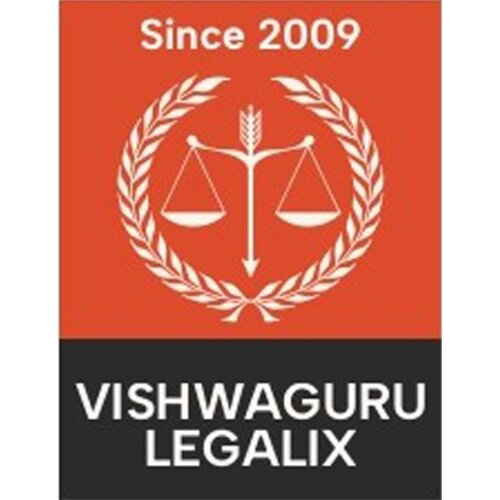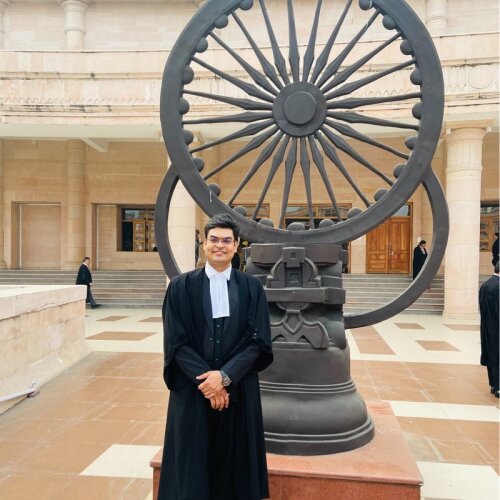Best Child Visitation Lawyers in Lucknow
Share your needs with us, get contacted by law firms.
Free. Takes 2 min.
Free Guide to Hiring a Family Lawyer
List of the best lawyers in Lucknow, India
About Child Visitation Law in Lucknow, India
Child Visitation refers to the legal arrangement that allows a non-custodial parent or guardian to spend time with their child after a separation, divorce, or custody dispute. In Lucknow, India, Child Visitation laws are governed by the Hindu Minority and Guardianship Act, 1956, and the Guardians and Wards Act, 1890.
Why You May Need a Lawyer
There are several situations where you may need the assistance of a lawyer in matters related to Child Visitation:
- Your ex-spouse or partner is denying you access to your child
- You want to modify an existing child visitation agreement
- You need help in negotiating a visitation schedule that works for both parties
- Your child's custodial parent is not following the visitation arrangement
- You need to establish paternity or prove your biological relationship
Local Laws Overview
In Lucknow, India, the following key aspects of local laws are particularly relevant to Child Visitation:
- Visitation rights are generally granted in the best interests of the child, considering factors like age, preference, and welfare.
- Parents or guardians can establish a visitation schedule either through mutual agreement or by seeking a court order.
- Non-custodial parents have the right to reasonable visitation, unless it is deemed detrimental to the child's well-being.
- A court may modify or restrict visitation rights if there is evidence of abuse, neglect, or other circumstances that may harm the child.
Frequently Asked Questions
1. Can grandparents seek visitation rights in Lucknow?
Yes, under the Hindu Minority and Guardianship Act, grandparents have the right to seek visitation and maintain a relationship with their grandchildren.
2. How can I enforce my visitation rights if they are being denied?
If your visitation rights are being denied, you can file a petition in the family court and seek an enforcement order. The court can take appropriate action against the denying party.
3. Can visitation rights be modified?
Yes, visitation rights can be modified if there is a significant change in circumstances or if it is in the best interests of the child. You can approach the court to seek a modification order.
4. What can I do if the custodial parent is interfering with my visitation?
If the custodial parent is consistently interfering with your visitation rights, you can file a complaint with the police or approach the court for necessary legal action against them.
5. Can a parent deny visitation if child support payments are not made?
No, visitation rights and child support obligations are separate legal matters. A parent cannot deny visitation rights based on non-payment of child support, and conversely, a custodial parent cannot withhold child support due to denied visitation.
Additional Resources
If you need legal advice or assistance regarding Child Visitation in Lucknow, these resources may be helpful:
- Lucknow Family Court
- Children's Rights Organizations/NGOs in Lucknow
- Lucknow Bar Association
Next Steps
If you require legal assistance regarding Child Visitation in Lucknow, India, it is advisable to consult with a qualified family lawyer. They can evaluate your situation, provide personalized advice, and guide you through the legal process to protect your rights as a parent or guardian.
Lawzana helps you find the best lawyers and law firms in Lucknow through a curated and pre-screened list of qualified legal professionals. Our platform offers rankings and detailed profiles of attorneys and law firms, allowing you to compare based on practice areas, including Child Visitation, experience, and client feedback.
Each profile includes a description of the firm's areas of practice, client reviews, team members and partners, year of establishment, spoken languages, office locations, contact information, social media presence, and any published articles or resources. Most firms on our platform speak English and are experienced in both local and international legal matters.
Get a quote from top-rated law firms in Lucknow, India — quickly, securely, and without unnecessary hassle.
Disclaimer:
The information provided on this page is for general informational purposes only and does not constitute legal advice. While we strive to ensure the accuracy and relevance of the content, legal information may change over time, and interpretations of the law can vary. You should always consult with a qualified legal professional for advice specific to your situation.
We disclaim all liability for actions taken or not taken based on the content of this page. If you believe any information is incorrect or outdated, please contact us, and we will review and update it where appropriate.
















